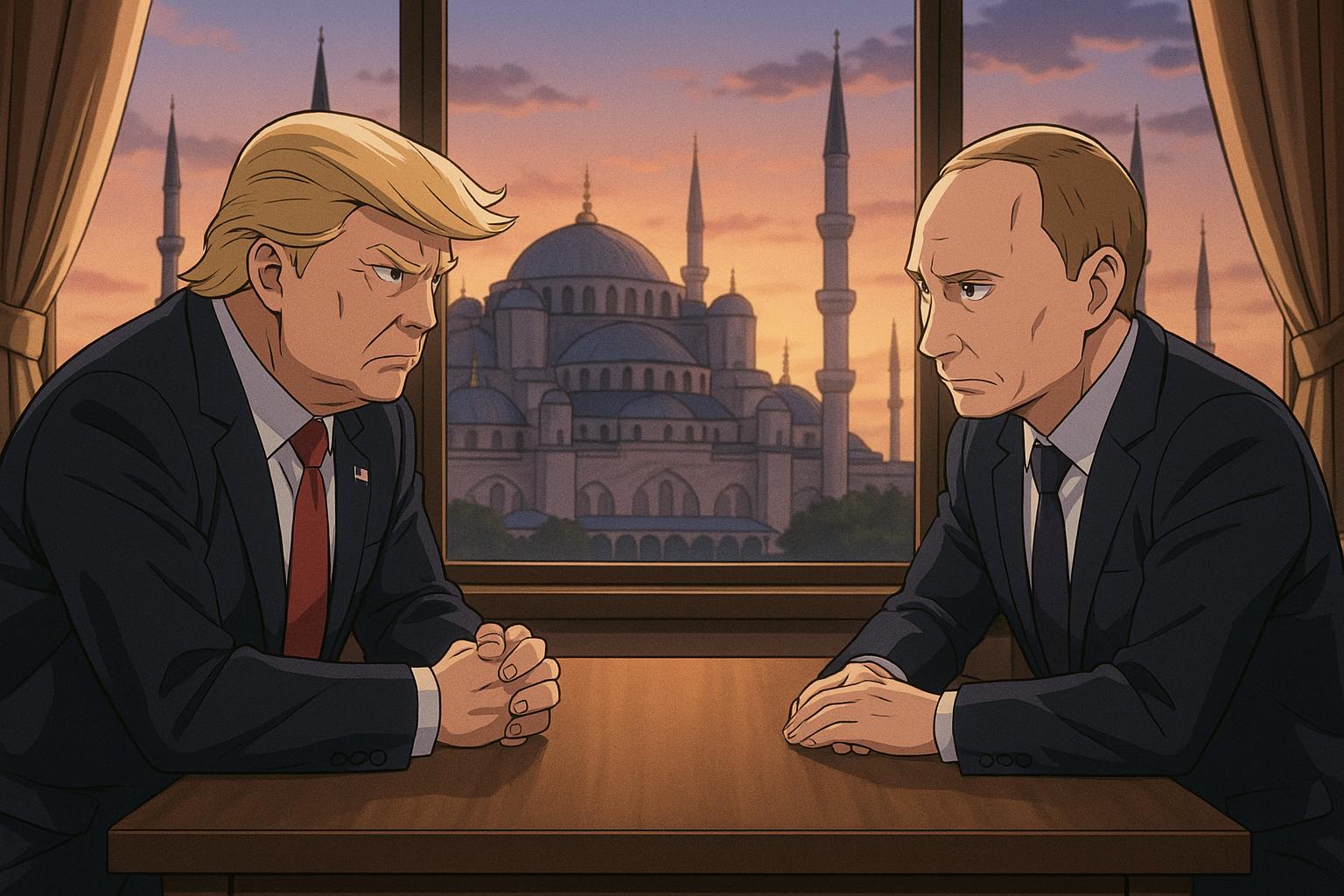In a stark assertion regarding the ongoing conflict in Ukraine, Donald Trump stated that no peace agreement can be realised until he meets with Russian President Vladimir Putin. This remark, made during the final phase of his Middle Eastern tour, highlights the complexities and expectations surrounding upcoming diplomatic engagements, particularly the peace talks scheduled to occur in Turkey. Trump suggested that the absence of his involvement might have been a factor in Putin’s decision to withdraw from the negotiations, stating, “Nothing is going to happen until Putin and I get together… obviously, he was going to go but he thought I was going to go.”
Putin had initially called for direct talks with Ukrainian President Volodymyr Zelensky, but he declined to attend the discussions that were set to begin in Istanbul. The Kremlin left the international community in suspense for days regarding Putin's participation before ultimately announcing he would not attend, prompting Zelensky to criticise this ‘theatrical’ behaviour. Zelensky expressed doubts about Russia's genuine commitment to peace negotiations, asserting that true engagement requires a willingness from the involved parties to reach a resolution, stating, “All parties must demonstrate willingness to take part in negotiations... the first step must be an unconditional ceasefire.”
The diplomatic meeting in Istanbul, the first since March 2022, sees Ukraine represented by Defence Minister Rustem Umerov, whereas Moscow has sent a lower-level delegation led by Vladimir Medinsky, suggesting a lack of seriousness on Russia's part. Observers note that the absence of key leaders reduces the likelihood of significant progress. Both Trump and U.S. Secretary of State Marco Rubio have underscored the necessity of high-level dialogue, indicating that any meaningful negotiation hinges on Trump’s involvement. Rubio emphasised the challenge posed by the current geopolitical context, where Russia’s battlefield gains potentially empower its refusal to yield in negotiations.
As the war continues, both sides remain entrenched in their positions, with Ukraine advocating for an immediate ceasefire while Russia demands assurances against Western military assistance and Ukraine's alignment with NATO. This standoff is exacerbated by the ongoing violence and territorial disputes that have defined the conflict since its escalation in 2022. The potential for further military action by Russia looms large, with assessments suggesting that Moscow is keen to stall peace talks to consolidate its territorial advances.
Zelensky’s comments were made in conjunction with his meeting with Turkish President Recep Tayyip Erdoğan in Ankara, as he navigates the intricacies of international diplomacy. His position reflects a broader skepticism shared by many international leaders regarding Russia’s motives, particularly as the conflict inflicts a toll of casualties and humanitarian crises within Ukraine.
The gathering at the Dolmabahce Palace in Istanbul is seen as a crucial moment, yet low expectations pervade discussions. The absence of senior figures like Putin and uncertainty surrounding Trump's potential contributions raise questions about the future of peace efforts in Ukraine, leaving the international community to ponder the elusive goal of a sustainable resolution to the war.
As this tense situation unfolds, observers are calling for heightened diplomatic engagement and increased pressure on Russia to demonstrate a willingness to negotiate earnestly. The stakes are high, not just for Ukraine but for global stability, as the conflict has ignited broader geopolitical tensions reminiscent of historical international crises.
Reference Map
- Paragraph 1: (1), (2), (4)
- Paragraph 2: (1), (2)
- Paragraph 3: (4), (5)
- Paragraph 4: (2), (7)
- Paragraph 5: (1), (3), (6)
- Paragraph 6: (4), (7)
- Paragraph 7: (3), (5)
- Paragraph 8: (2), (4)
Source: Noah Wire Services
